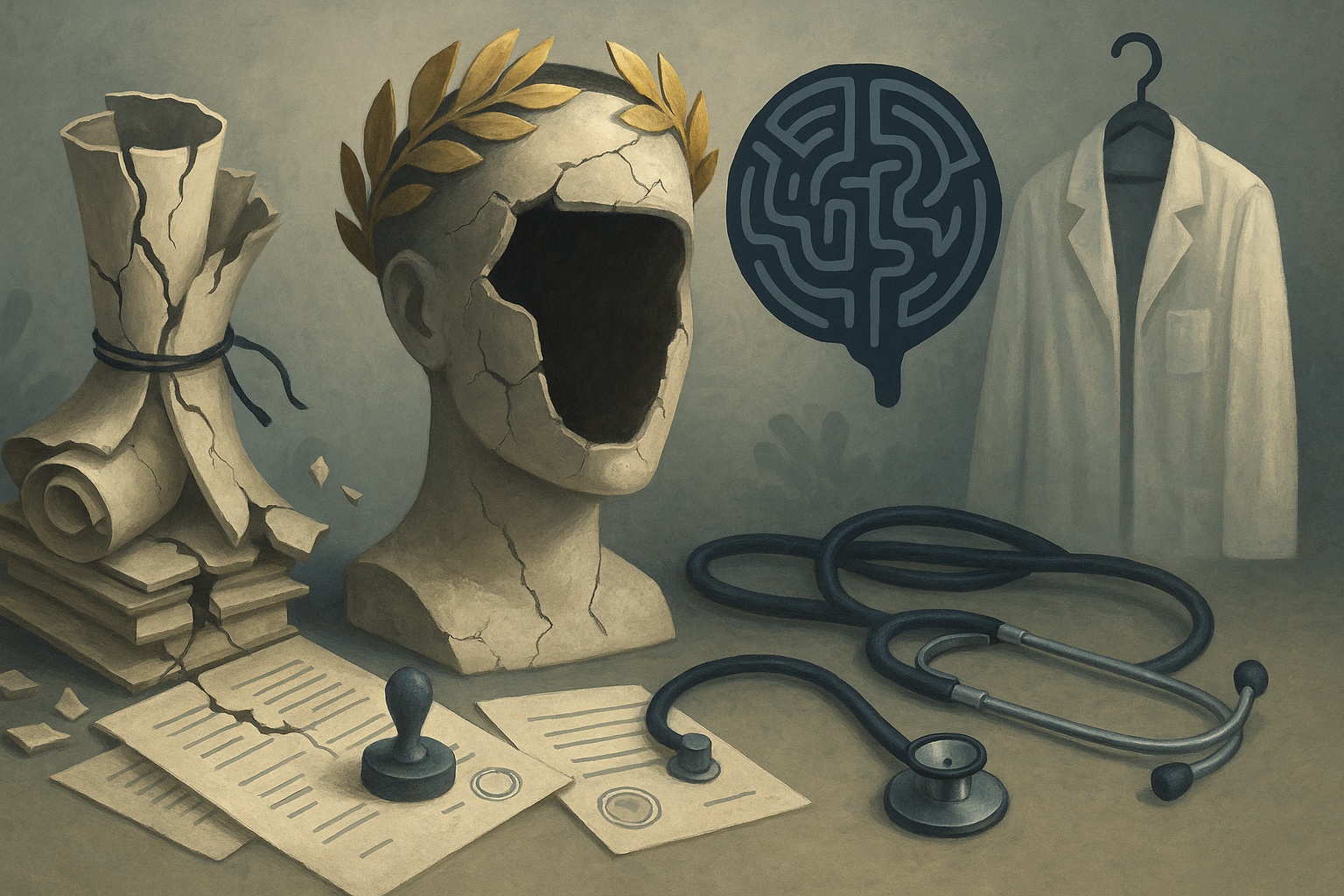There is a paradox in modern Czech society. We meet people with extremely high IQ, strong diplomas, and prestigious professions. They made it through psychology, medicine, and pharmaceuticals. On paper, they look like the intellectual elite. In reality, they are nothing of the sort. They lack rationality, cannot think critically, and collapse outside the narrow frame of their formal education. Passing through the system is not proof of true intelligence. It is proof of obedience, persistence, and memory.
The Czech educational system
The roots of this paradox lie in the Czech educational system. It was built on memorization, conformity, and exams; it rewards students who can sit for hours, repeat information, and follow rules. It does not reward independent thought or creativity. Women often thrive in this environment because it matches the skills they use best: patience, discipline, and compliance. They make it through, but they do not come out as thinkers. They come out as survivors of a bureaucratic system.
The profile of high-IQ women in professions
Take psychologists. They passed exams, but never mastered theories. They can cite terms, but not connect them to deeper philosophical issues. Doctors are no different. They are not strong in diagnostics. They rely on standard procedures and protocols. While not everyone can pass the demanding MD exams, the truth is harsh: once passed, almost anyone can work as a doctor. Competence in reasoning, decision-making, or innovation is not required. Pharmaceutical personnel follow the same path. They learn protocols, memorize interactions, and repeat routines. But they lack wider vision. They do not ask deeper questions.
All of them share the same self-perception. They believe they are smart because they survived the hardest schools. They wear their diplomas as a badge of superiority. Yet surviving a system is not the same as mastering reality.
Failures in practical rationality
The biggest hole lies in practical rationality. These women cannot run a company. They cannot manage a team or make decisions when rules are absent. They have no entrepreneurial courage, no creativity, no ability to move outside the safety of a textbook. Their thinking collapses in unstructured situations.
Put them in politics, and they would not last a single day. Politics is messy, full of hidden motives, persuasion, and risk. It requires flexibility, courage, and rational calculation. They do not possess these qualities. What they have is obedience and conformity.
This failure is not just personal. It is social. Czech society produces elites who cannot handle complexity. It creates leaders who look intelligent but are in fact hollow. The model is disturbingly close to the Chinese one: high test performance, low creativity, no space for independent reasoning.
IQ as a dominant factor, yet not enough
IQ matters. Imagine three levels: 80, 100, 120. The difference between them decides much of life. IQ is nearly everything when it comes to education, jobs, and social status. But even among those with high IQ, the outcomes vary widely.
High IQ without rationality is dangerous; high IQ without critical thinking is empty. High IQ without philosophy creates elites who look superior but lack depth. What remains is arrogance, not wisdom.
Critical thinking vs. formal intelligence
Here lies the core of the paradox. A high IQ does not mean the ability to think critically. It does not mean understanding philosophy. And it does not mean rational decision-making. It only means potential. But potential can be wasted.
These women confuse passing exams with being wise. They collapse when asked to follow or construct a philosophical argument. They cannot hold a debate without falling back on slogans. Overconfidence covers their weakness. They look strong, but they are fragile.
Why philosophy exposes the weakness
Philosophy is the sharpest test. It forces you to question your assumptions, not repeat them. It requires courage to doubt. Czech education discourages that courage. Students are taught to memorize, not to ask. When confronted with paradoxes, moral dilemmas, or nonlinear reasoning, they fail.
They present themselves as intelligent, yet they cannot handle basic philosophical discourse. They claim superiority, but philosophy exposes their emptiness.
Broader consequences
The result is a class of professionals who look intelligent but are not. They reinforce conformity instead of innovation; they repeat the rules instead of rewriting them. They make Czech society stagnant. Business suffers. Academia suffers. Public life suffers.
The danger is simple. When society confuses diplomas with intelligence, it gives power to the wrong people. It builds a system where hollow elites dominate, while real thinkers remain marginalized.
Conclusion
High IQ and diplomas are not enough. Rational intelligence, critical thinking, and philosophy matter more. The Czech educational system fails to teach them. Instead, it produces obedient survivors who look smart but collapse outside their bubble.
If Czech society wants progress, it must break this cycle. It must stop confusing formal achievement with wisdom. Intelligence must be redefined. IQ is a foundation, but without rationality, it becomes a trap. The paradox remains: high IQ, yet stupid.

Leave a Reply